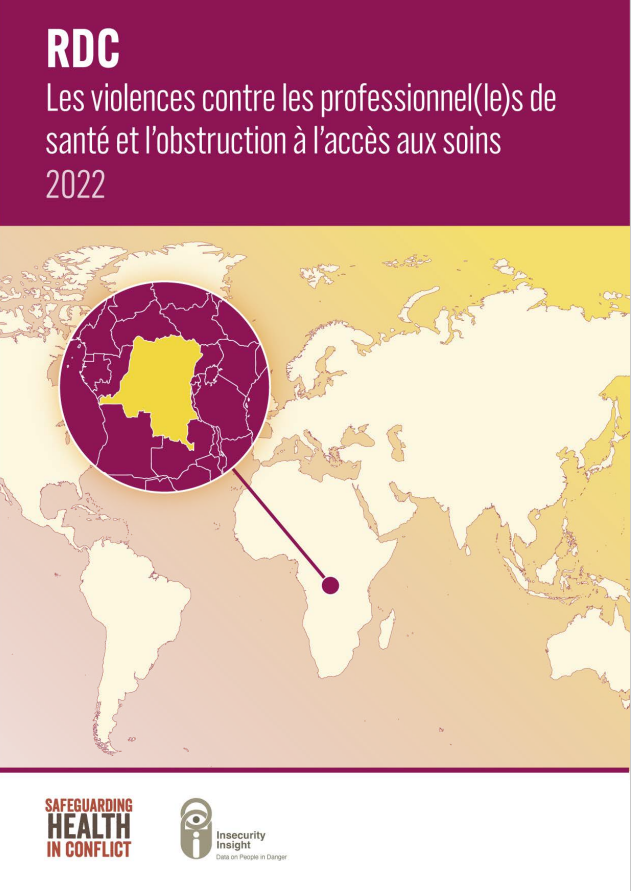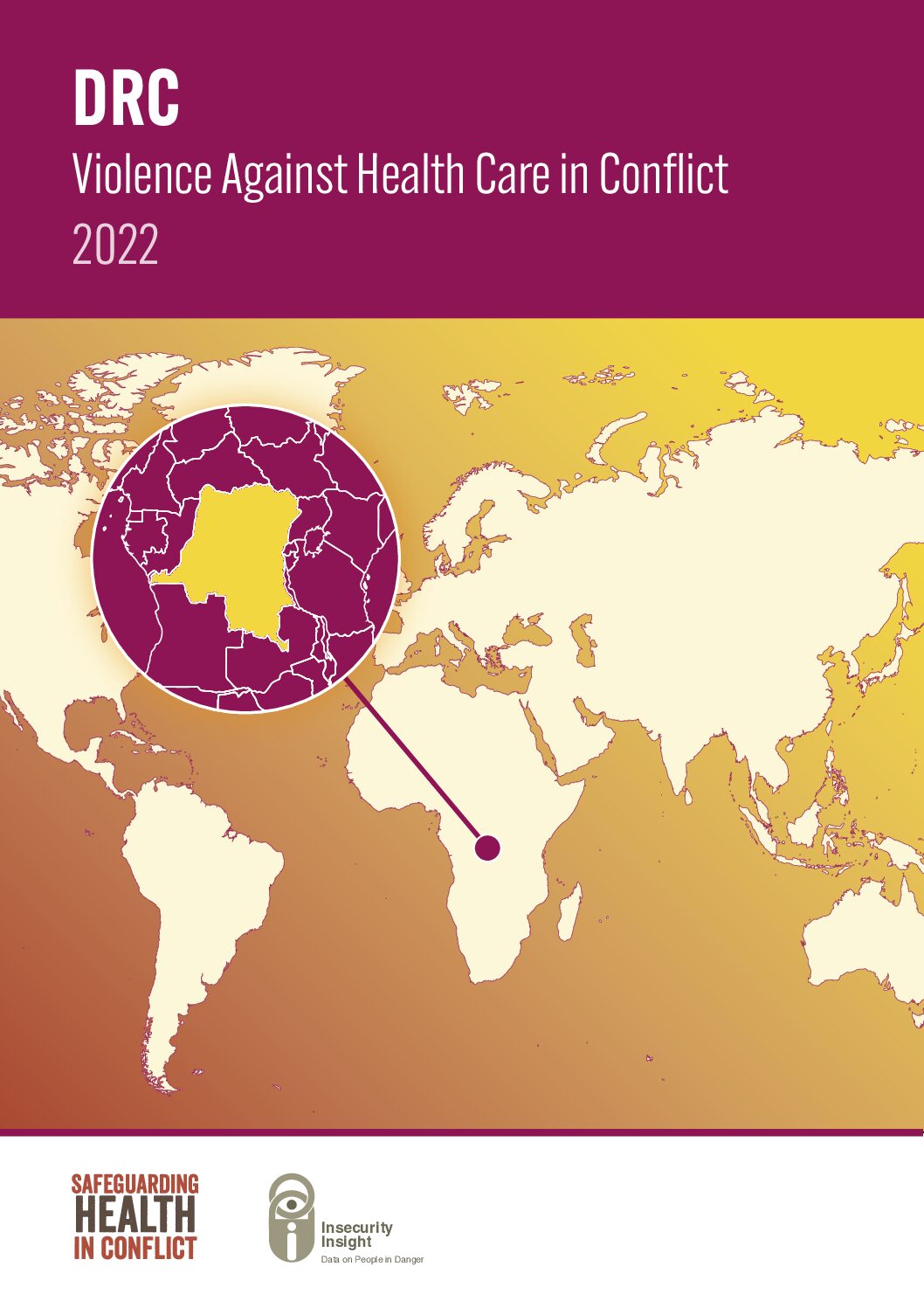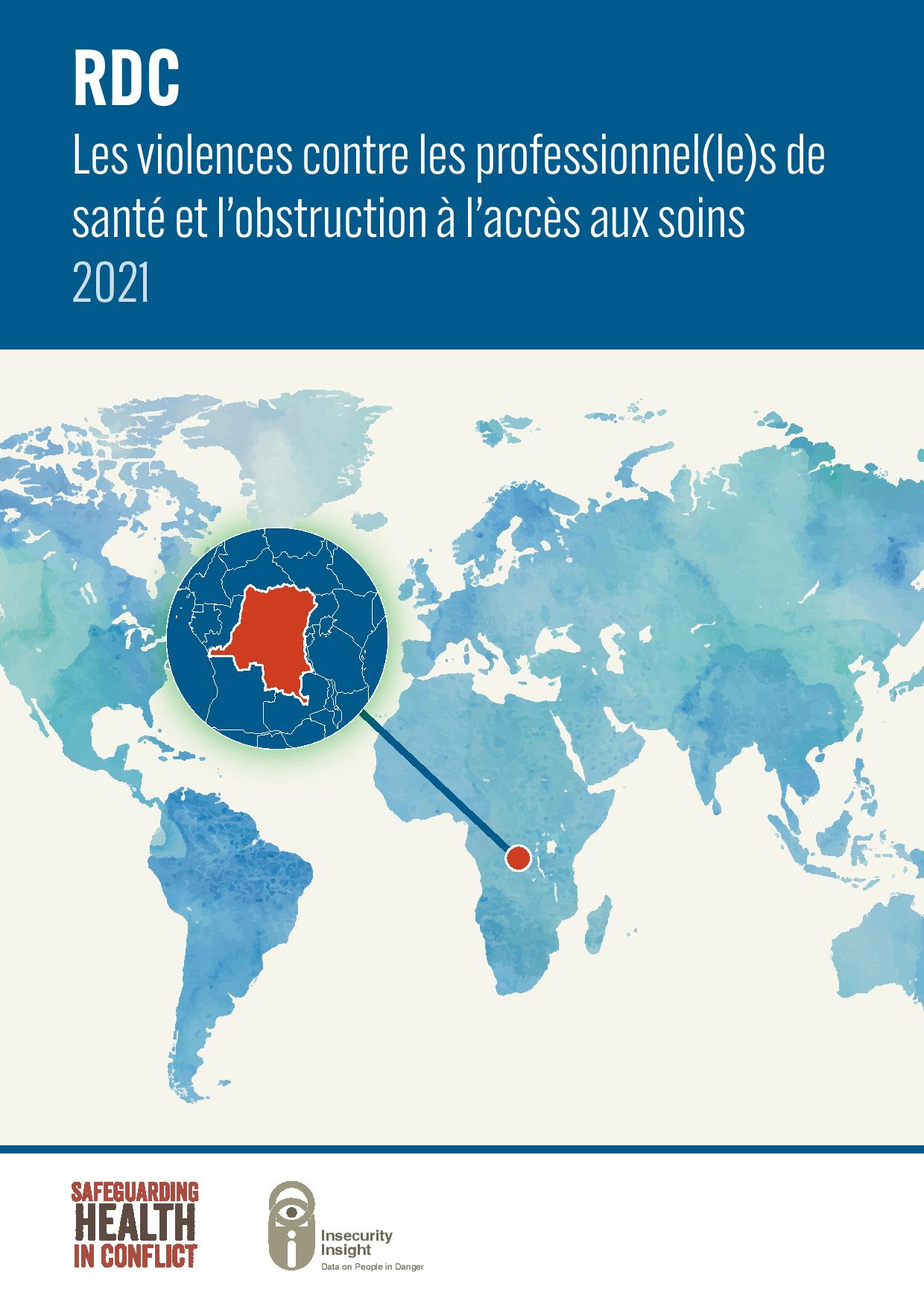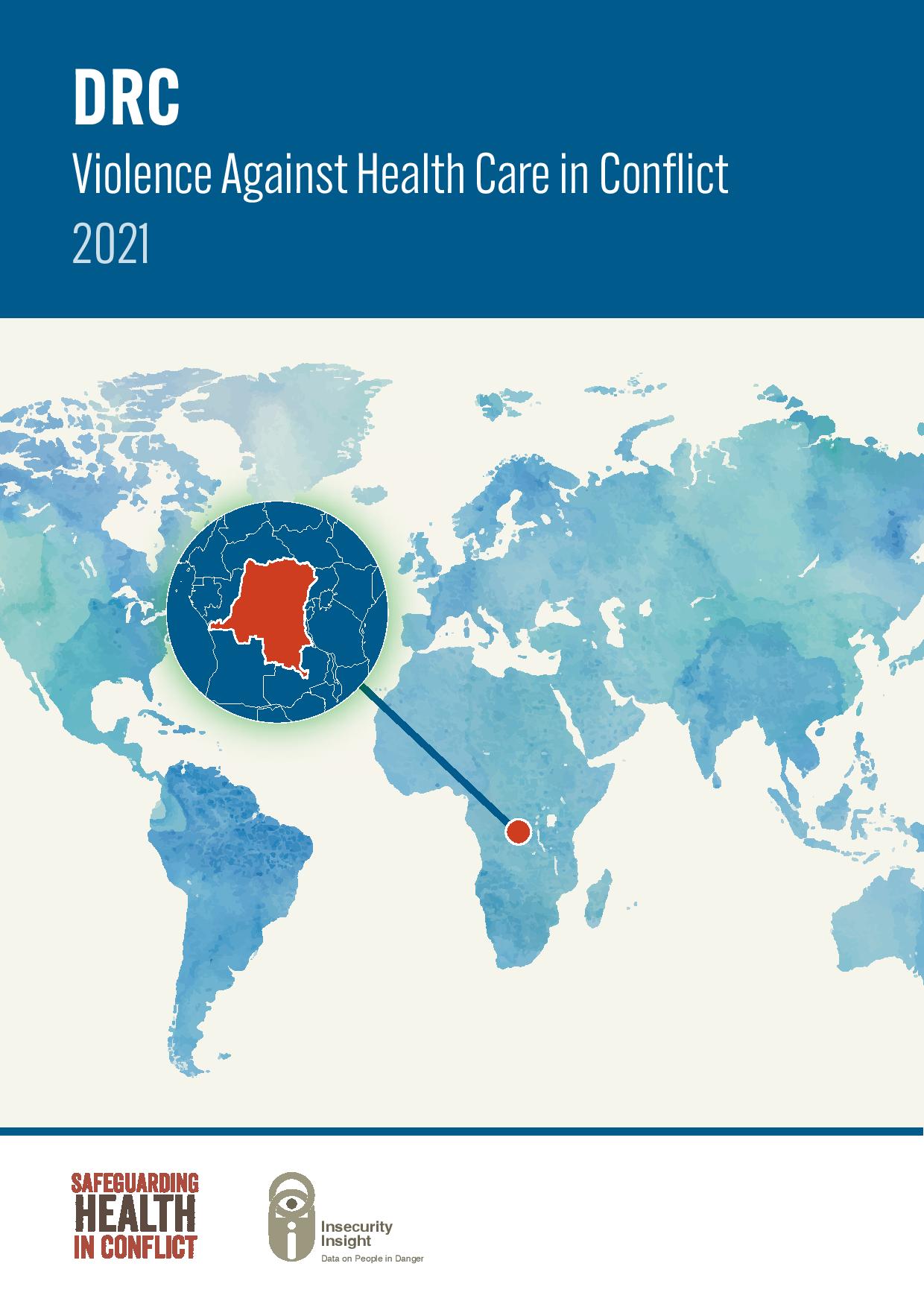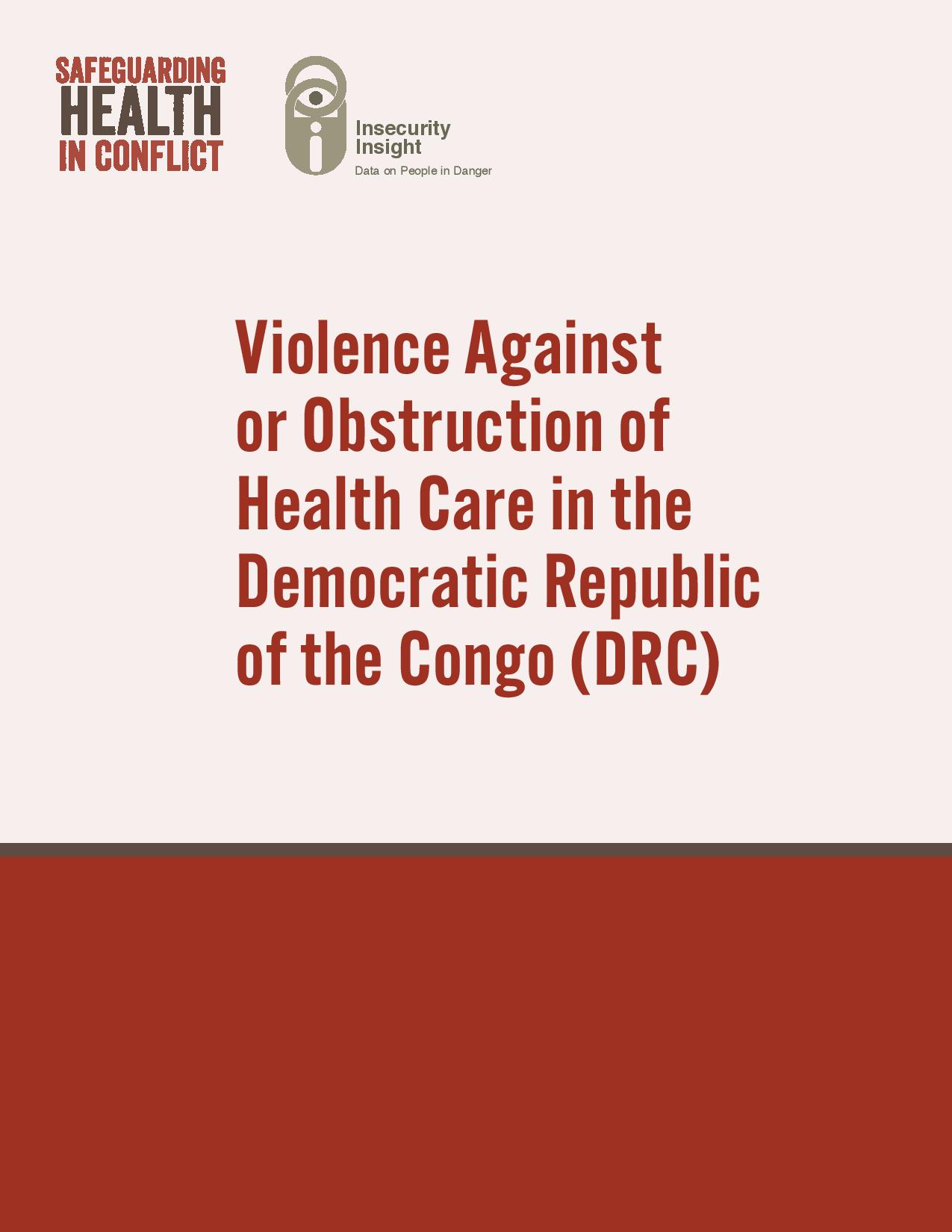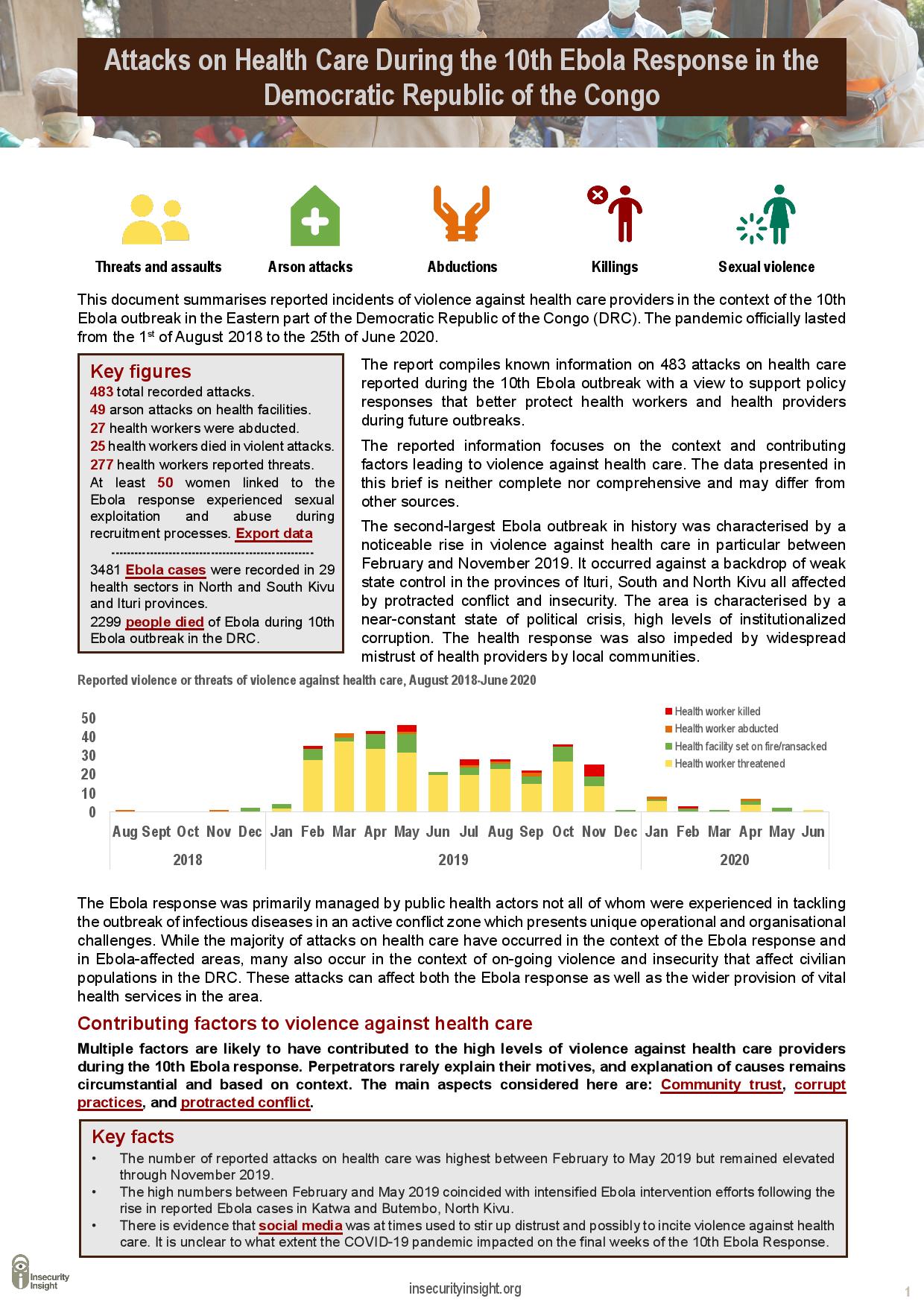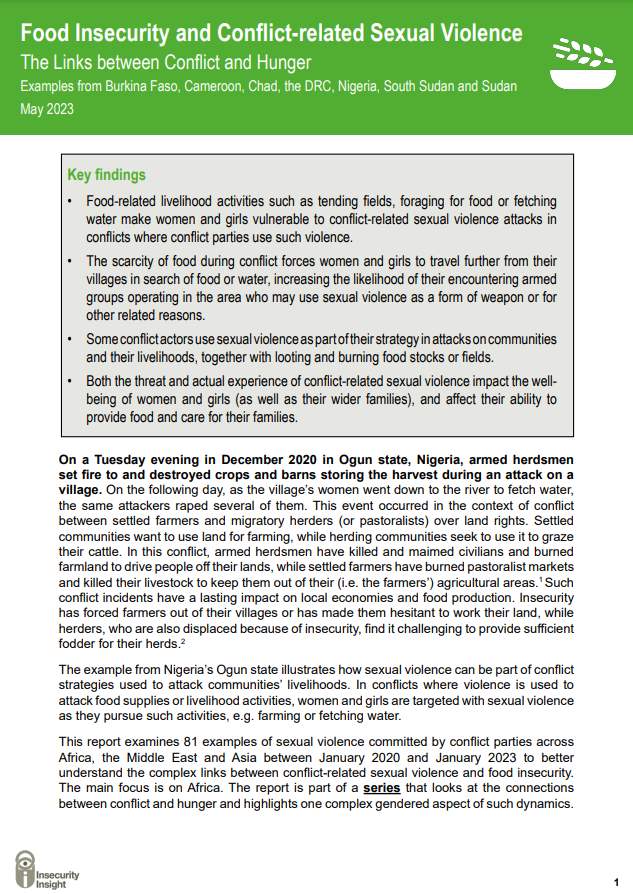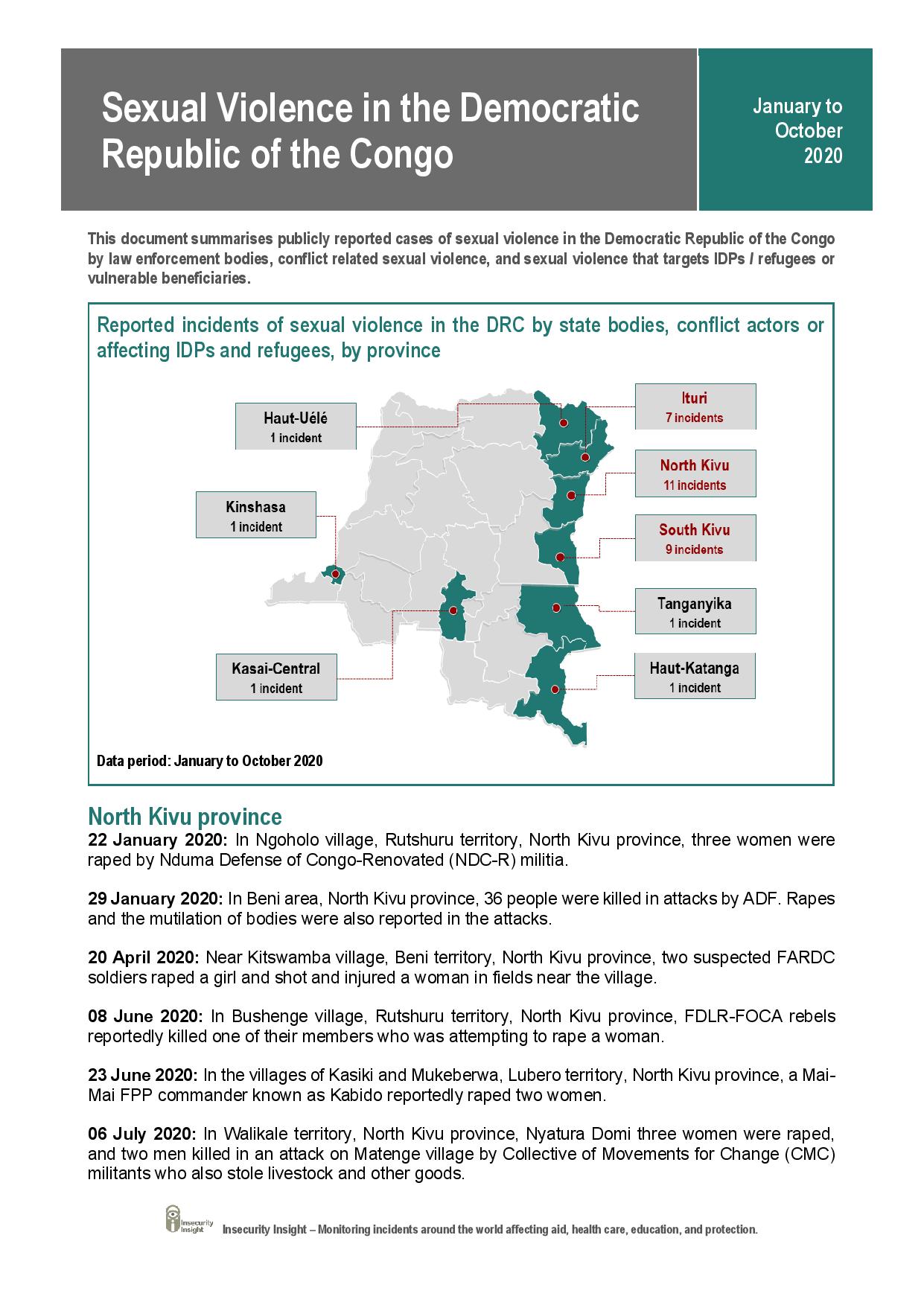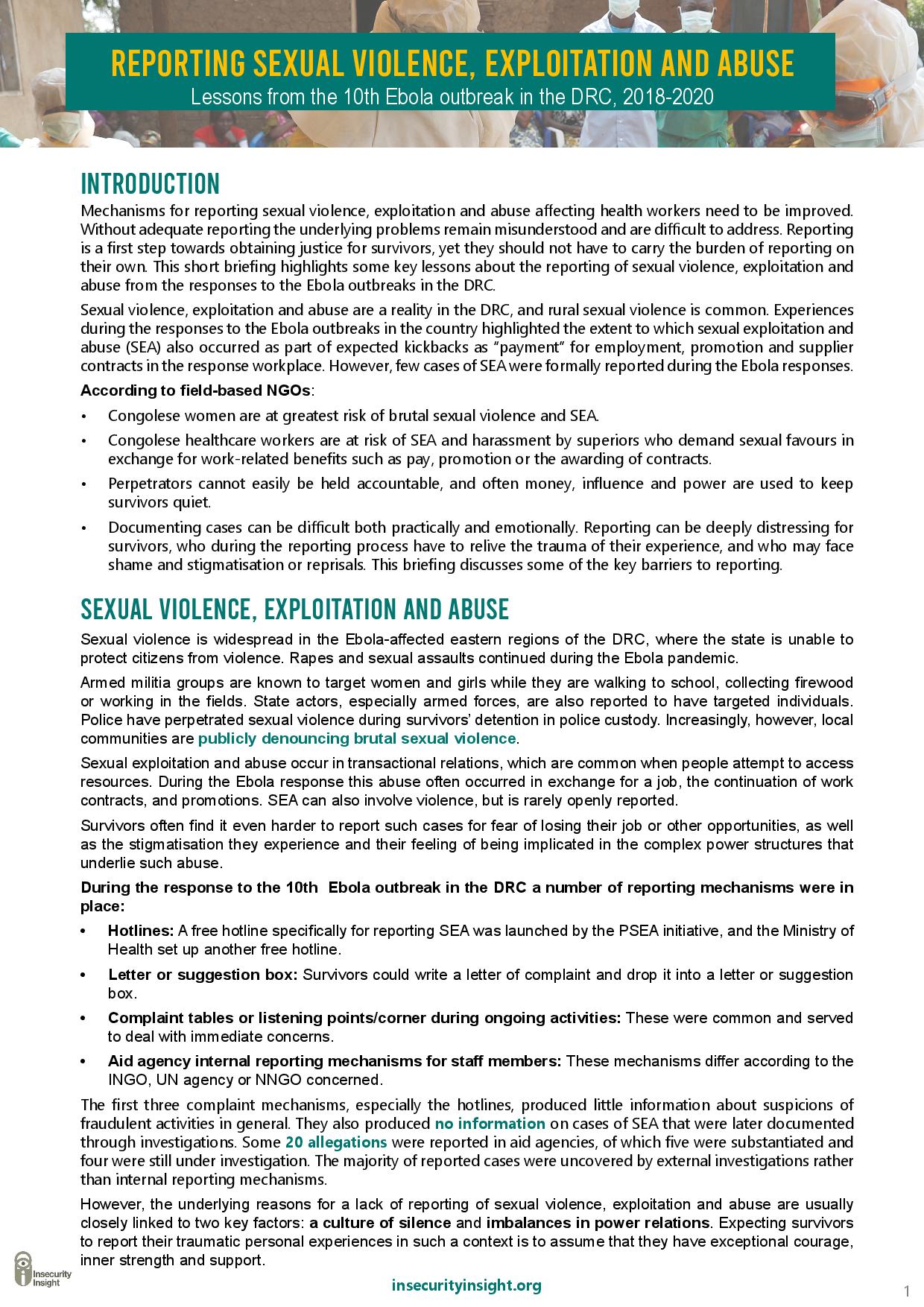- Home
- About us
- Press Releases
- Projects
- SIIM
- Security Incident Information Management (SIIM) (EN)
- Security Incident Information Management (SIIM) FR
- Security Incident Information Management (SIIM) (ES)
- Security Incident Information Management (SIIM) AR
- SIIM in NGO Security Collaboration
- Toolkit: Evidence that Protects Health Care
- Support for Advocacy
- Mobile Guides and Podcasts
- Mobile guides on security
- Research partnership
- Concept development
- Information
- Country Pages
Democratic Republic of the Congo
Mass displacement, food insecurity and disease outbreaks in the context of recurrent violence between an array of armed groups are among the many humanitarian challenges facing the DRC.
INGO supported hospital attacked in Ituri province
06 March 2024: In Bahema-North locality, Djugu territory, Ituri province, the MSF-supported Drodro General Referral Hospital was attacked by CODECO militia during the night. The hospital, pharmacy and a health centre were looted, a patient killed and nursing staff and patients fled the premises. Sources: Personal Communication, MSF, and UN News. Return to DRC home page. more
Previous stories:
Social Media Monitoring
Insecurity Insight monitors and examines social media to identify when it is used to spread false information and incite violence against aid providers. In the DRC, social media has been used during Ebola outbreaks to spread doubt about the intentions of the health responders and at times to incite violence against the Ebola programme as well as the wider aid sector.
We also collaborate with Rootwise and the Congo Humanitarian Analysis Team at Mercy Corps to develop and exploit community perception data in the DRC. Using best practice techniques for social listening and media monitoring, the joint collaboration’s innovative multisource approach brings together social media and radio data to provide rapid, corroborated insight derived from local concerns and expressions of need.
Reports
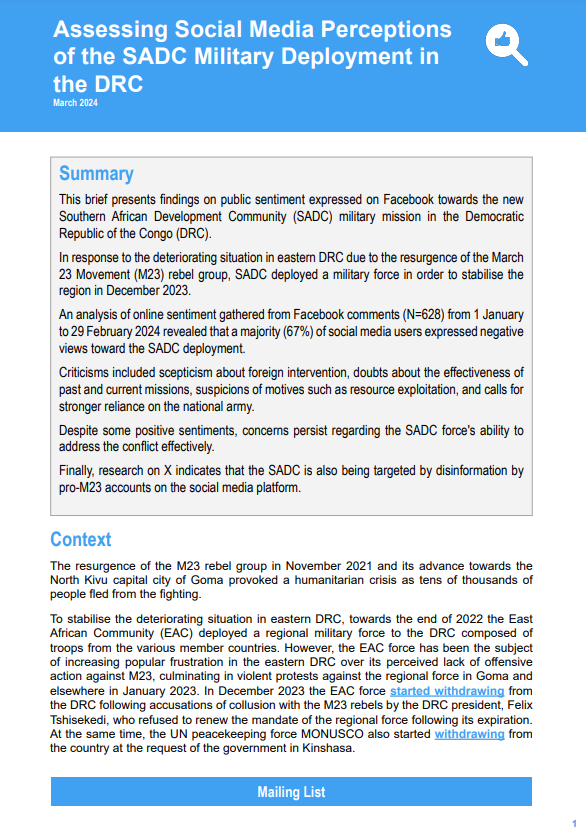
Assessing Social Media Perceptions of the SADC Military Deployment in the DRC
March 2024
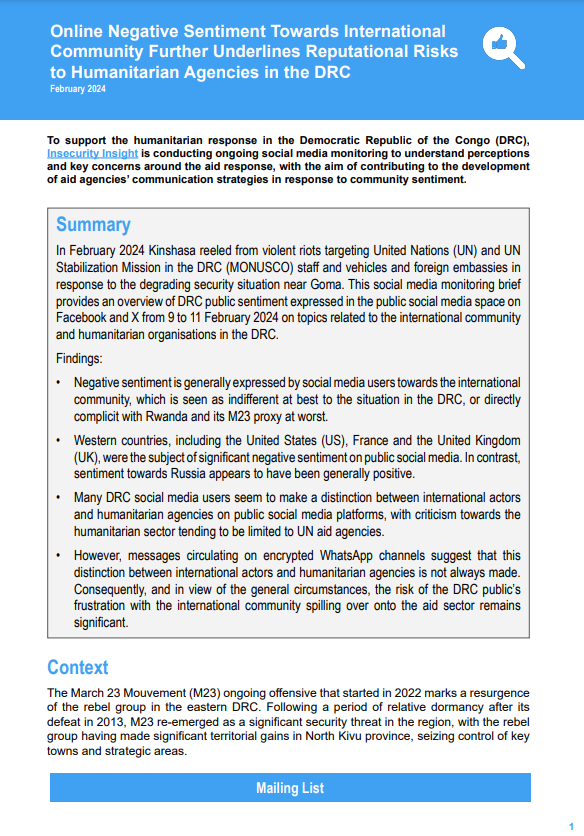
Online Negative Sentiment Towards International Community in the DRC
February 2024
Social Media Monitoring
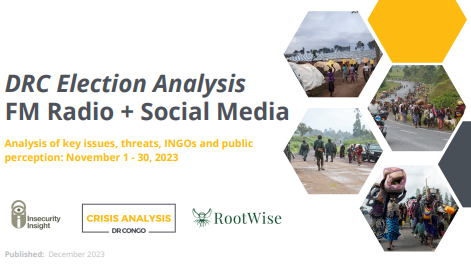
DRC
December 2023
Social Media and Radio FM Monitoring
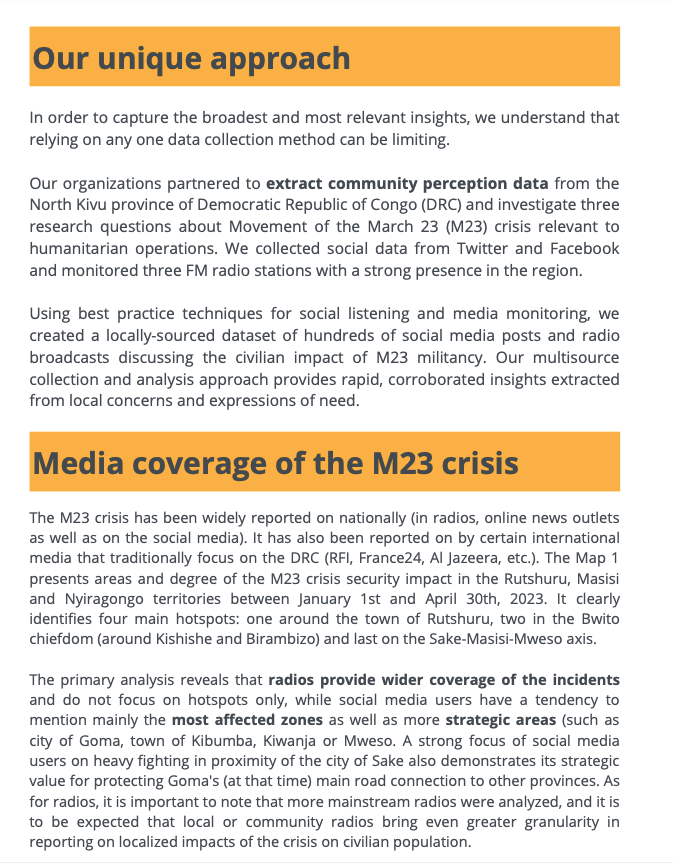
Community Perceptions of the M23 Crisis
May 2023
Social Media Monitoring
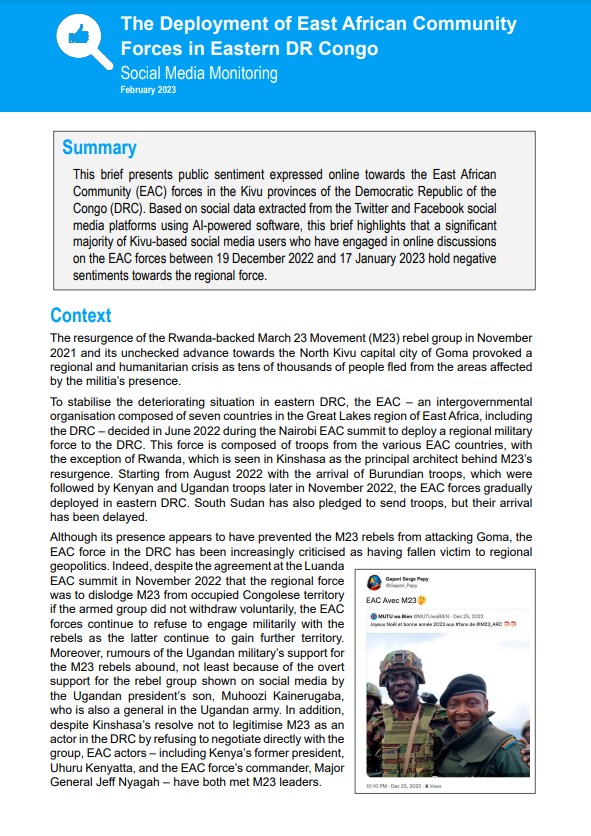
EAC Forces in the DRC
February 2023
Social Media Monitoring
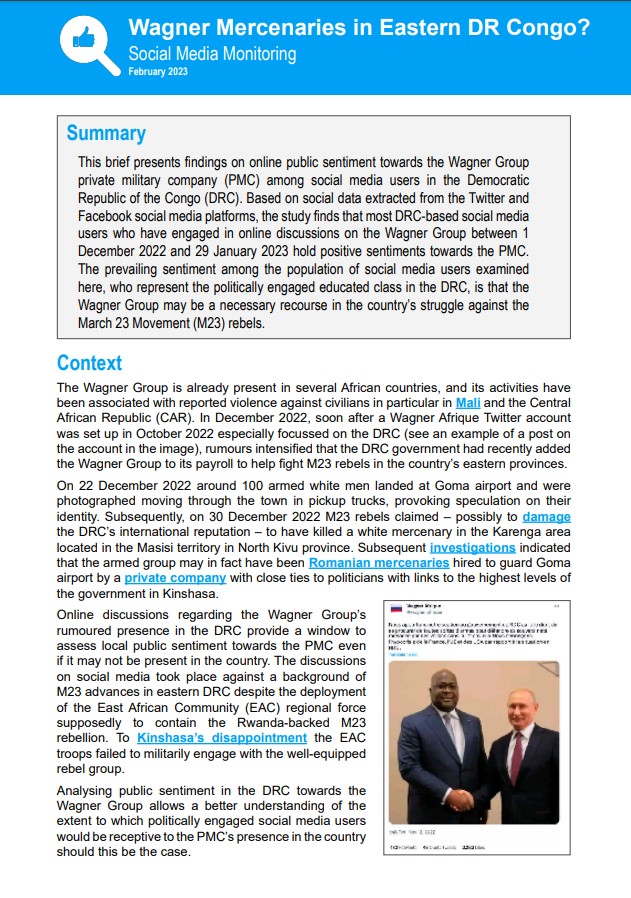
Wagner Mercenaries in DRC?
February 2023
Social Media Monitoring
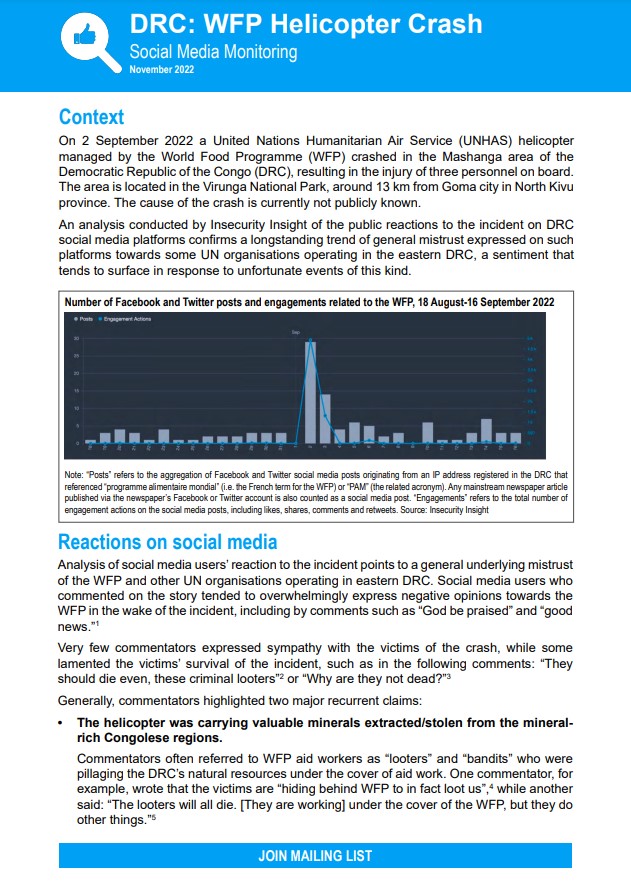
DRC- Disinformation WFP Helicopter Crash
14 November 2022
Social Media Monitoring
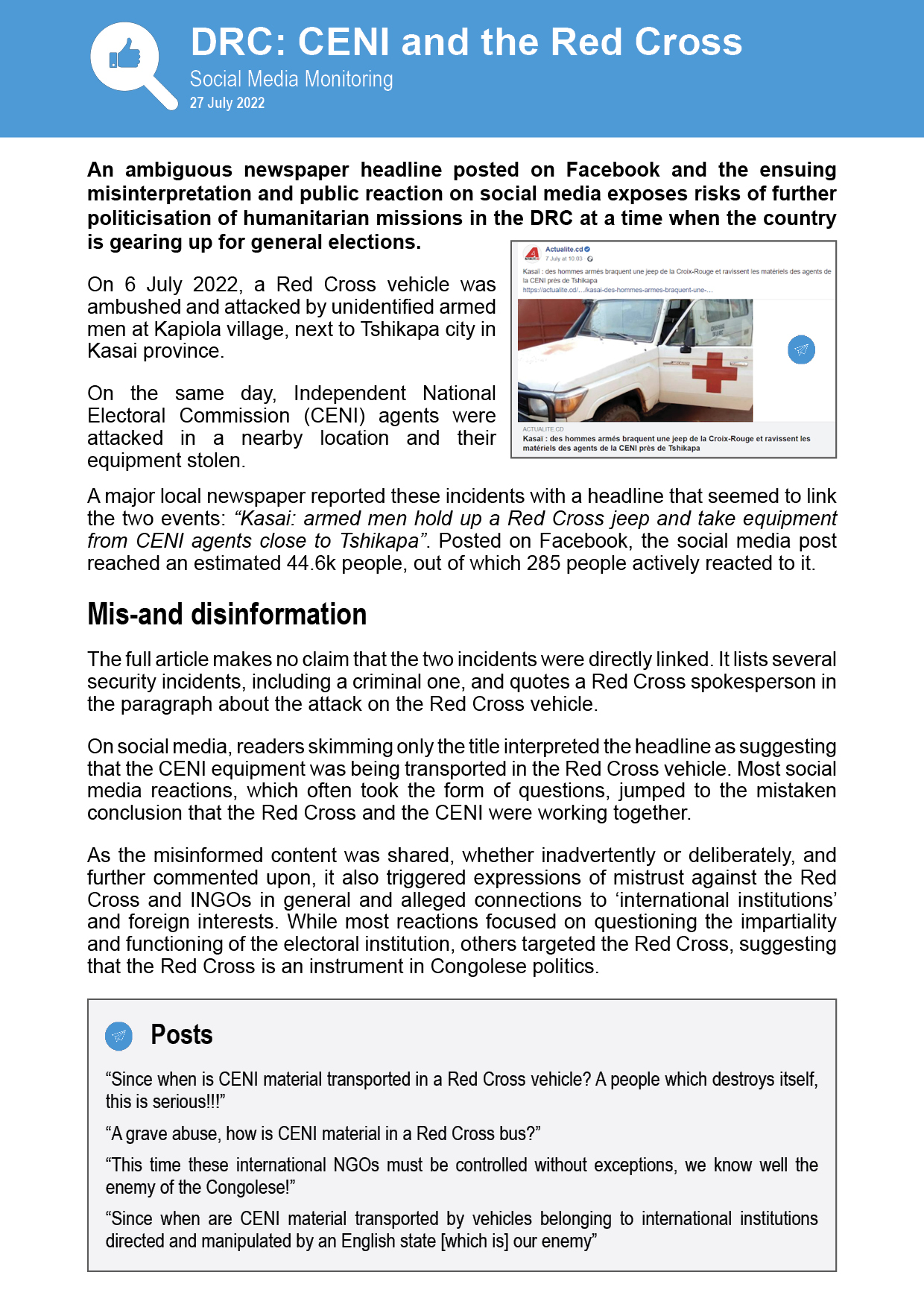
CENI & the Red Cross
27 July 2022
Social Media Monitoring
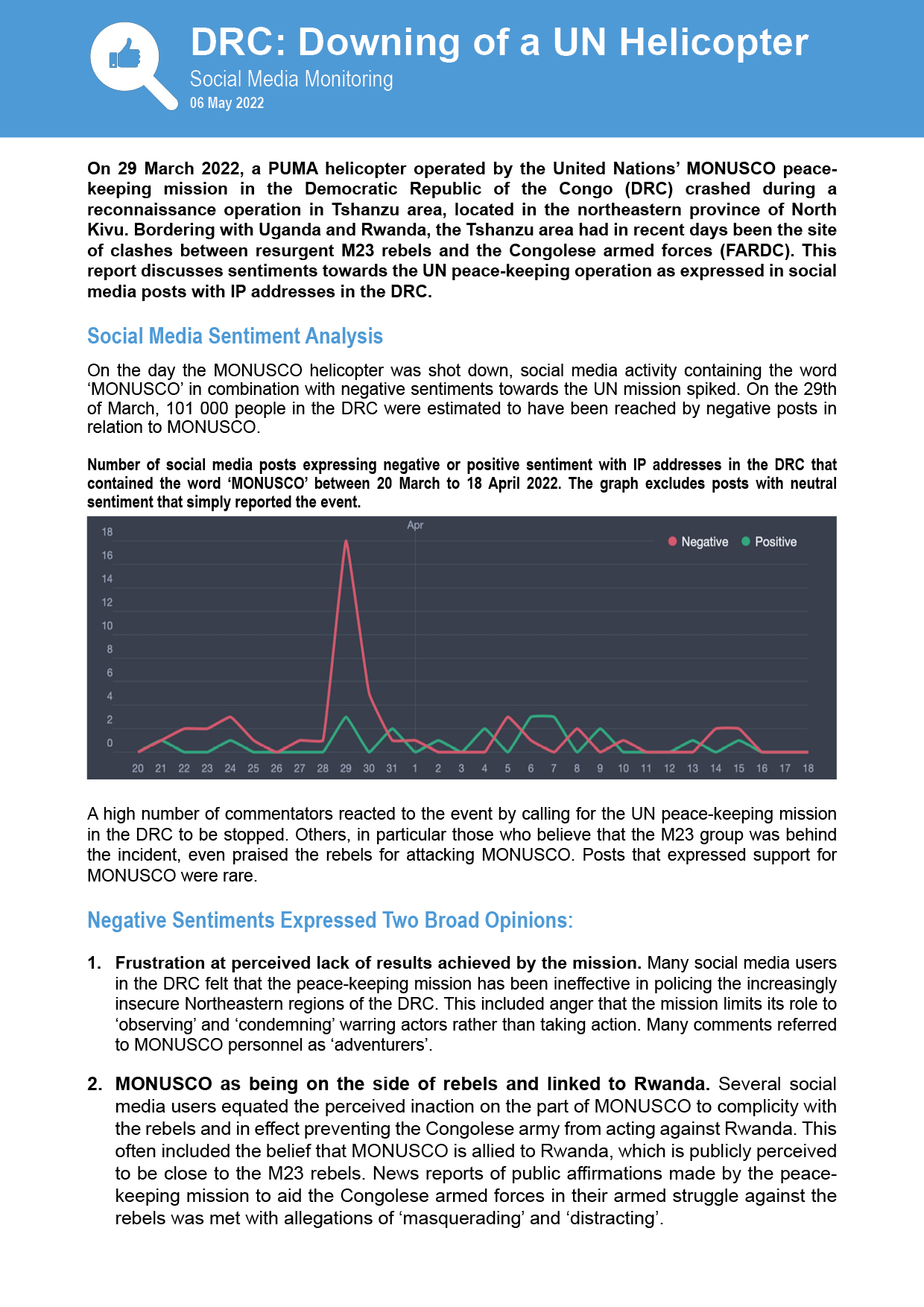
Downing of UN Helicopter
06 May 2022
Social Media Monitoring
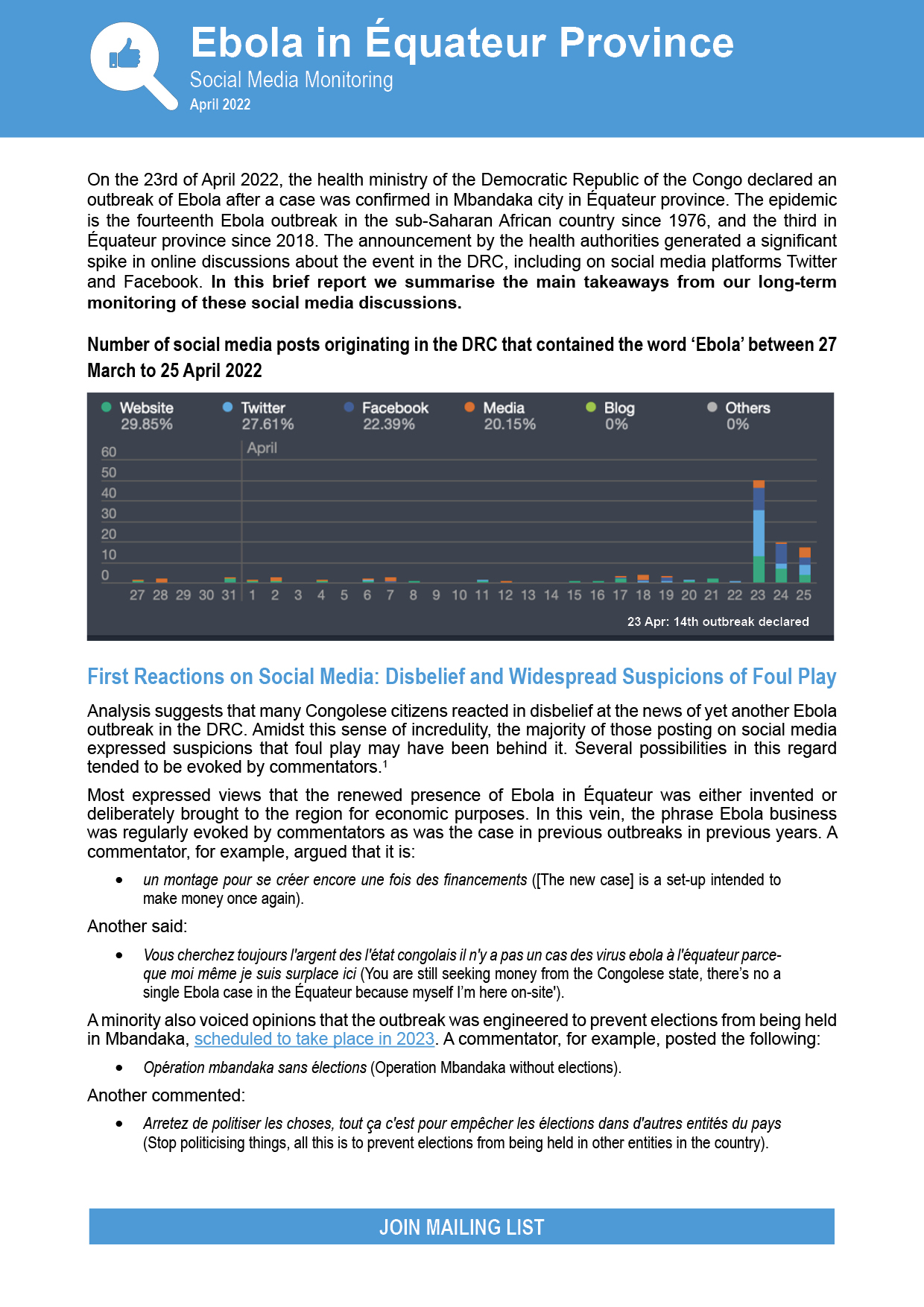
Ebola in Equateur
29 April 2022
Social Media Monitoring
Health Care
Insecurity Insight monitors attacks on health care in the DRC. Our data is available for download here.
Based on Insecurity Insight data, the DRC chapter of the 2022 Safeguarding Health in Conflict Coalition report identified at least 125 incidents of violence against or obstruction of access to health care in 2022, a similar number to 127 in 2021. At least 50 health workers were kidnapped. Health supplies were also looted and health centres set on fire, impacting health care providers’ ability to maintain safe staffing levels and stock health facilities with the necessary supplies. Incidents were reported in eight of the DRC’s 26 provinces, with nearly half occurring in North Kivu, a similar trend to previous years. The full chapter is accessible in English and in French.
Reports
Sexual Violence
Sexual violence in the DRC is widespread, particularly in rural communities. Perpetrators of sexual violence include unidentified armed group, various mai-mai militia groups, soldiers of the DRC and South Sudanese armed forces.
Following the 10th Ebola outbreak in the Eastern part of DRC in August 2018, reports of widespread sexual exploitation, harassment and abuse emerged. Insecurity Insight’s analysis report highlights some of the key learnings on reporting sexual violence, exploitation and abuse from the DRC’s 10th Ebola response. We also work with local organisations in the DRC to strengthen reporting and monitoring of incidents of sexual violence.
Reports
Education
Attacks on schools, teachers and students pose a significant threat to education in the DRC. Reflecting the gravity of the problem, it was reported in May 2023 that over 150 schools in North Kivu province in the east of the DRC had been attacked by armed groups since January with some of these schools rendered inoperable.
Insecurity Insight documents such incidents. Our data is available for download here.
